
You’ve probably experienced the disappointment of a bland meal that fails to satisfy your taste buds. This is where marinades and sauces come in, offering the potential to elevate your dishes and add an explosion of flavor with the right combination. Whether you’re grilling, roasting, or sautéing, marinades and sauces can be game-changers in the kitchen. In this article, we’ll explore the versatility and effectiveness of marinades and sauces in enhancing the taste of your meals.
From classic marinades like teriyaki and lemon-herb to homemade sauces made with quality ingredients, we’ll show you the different techniques and flavor combinations to spice up your meals. We’ll also delve into the benefits of homemade sauces, explore global flavors, provide storage tips, and address health concerns. Let’s dive in and unleash the full potential of your meals with the power of marinades and sauces.
Marinades and sauces are meal enhancers and flavor boosters that can take your dishes from average to exceptional. A marinade is a mixture of acidic liquids, oils, herbs, and spices that you soak food in before cooking to infuse it with flavor. Marinades are commonly used in grilling recipes, but they can also be used with other cooking methods, including baking, sautéing, and roasting.
Marinades work by penetrating the meat, seafood, or vegetable’s surface and breaking down their proteins, resulting in more tender and juicy dishes. Marinades also add complex flavors and aromas that complement the natural taste of the food.
When it comes to cooking with marinades, there are a few key techniques to keep in mind. First, consider the type of acid you are using. Commonly used acids include vinegar, citrus juice, and yogurt, but each one will impart a unique flavor profile and texture to the food. Second, pay attention to the marinating time. Too short and the flavor won’t penetrate the food sufficiently, while too long and the acid will break down the protein, resulting in mushy and tough meat. Finally, experiment with different herbs, spices, and oils to create unique flavor combinations that complement your dishes.
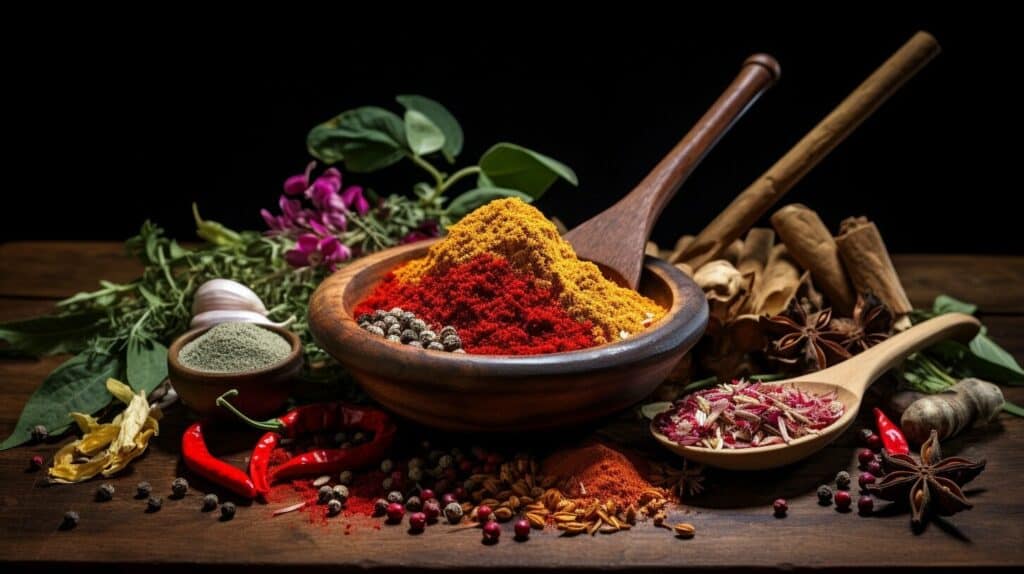
Marinades are an excellent way to jazz up simple dishes like chicken, steak, or tofu, but they can also be used with more exotic ingredients like octopus and quail. Don’t be afraid to experiment with different combinations of flavors and textures to create your own signature marinade.
While store-bought sauces may be convenient, homemade sauces are a great way to add flavor and complexity to your dishes. Using quality ingredients and experimenting with different flavors can result in unique and delicious sauces that can take your meal to the next level.
When making homemade sauces, it’s important to start with fresh and high-quality ingredients such as herbs, spices, and oils. Using fresh ingredients can significantly improve the overall flavor of the sauce, making it more vibrant and aromatic.
There are endless possibilities when it comes to creating homemade sauces. From classic tomato-based marinara sauces to creamy pesto sauces, the options are endless. One easy sauce you can make at home is a simple garlic butter sauce. Just combine butter, garlic, and parsley in a pan and let it melt together, and you have a delicious and easy-to-make sauce.
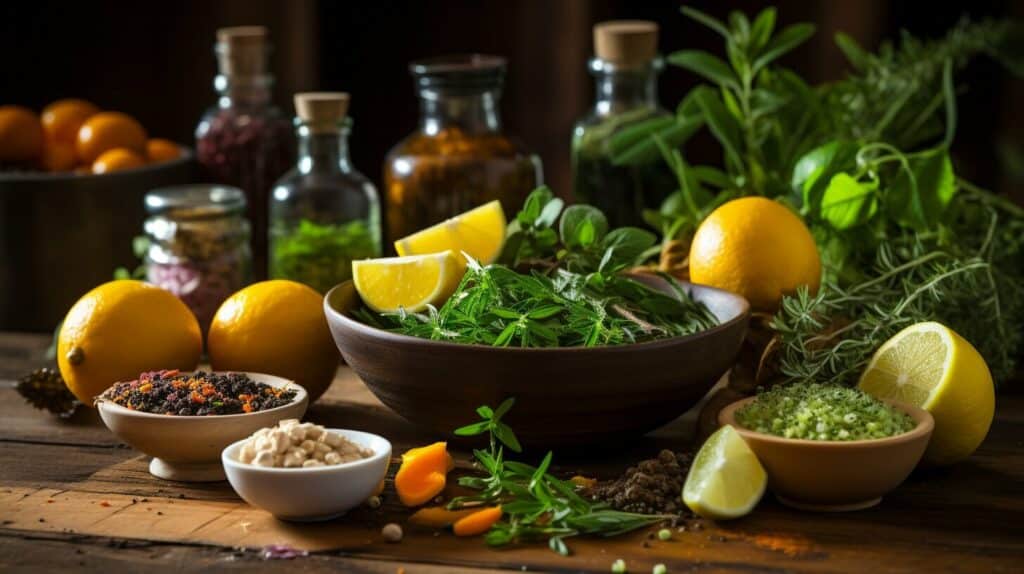
Don’t be afraid to get creative with your homemade sauces. Try experimenting with different herbs, spices, and ingredients to create unique flavor combinations. For example, adding a touch of honey to a barbecue sauce can add a hint of sweetness while balancing out the tanginess.
Another tip for homemade sauces is to make them in larger batches and freeze them for later use. This can save you time and effort in the long run, while still allowing you to enjoy the benefits of homemade sauces.
Marinade techniques play a crucial role in achieving the desired flavor infusion in your dishes. There are several methods to marinate meat, seafood, and vegetables, each with its unique benefits.
The first technique is the basic marinade, which involves mixing the ingredients in a bowl or a resealable plastic bag and allowing the food to sit in the marinade for a specific time. This method works best for thinner cuts of meat or seafood and requires at least 30 minutes of marinating time.
The second technique is the injection marinade, suitable for larger cuts of meat. This method involves injecting the marinade into the meat using a syringe or a meat injector. A great advantage of this technique is that it allows for the marinade to penetrate deep into the meat, resulting in a more flavorful and juicy dish.
The third technique is brining, which involves soaking meat, seafood, or vegetables in a saltwater solution infused with herbs, spices, and other seasonings. Brining works well for poultry, pork, seafood, and vegetables and requires longer marinating times ranging from 2 to 24 hours.
Regardless of the technique used, it’s essential to observe the recommended marinating times for the specific type of food you’re using. Proper marinating times ensure that the flavors penetrate the food evenly. Over-marinating can result in a mushy or overly salty taste, while under-marinating may not provide the expected flavor enhancement.
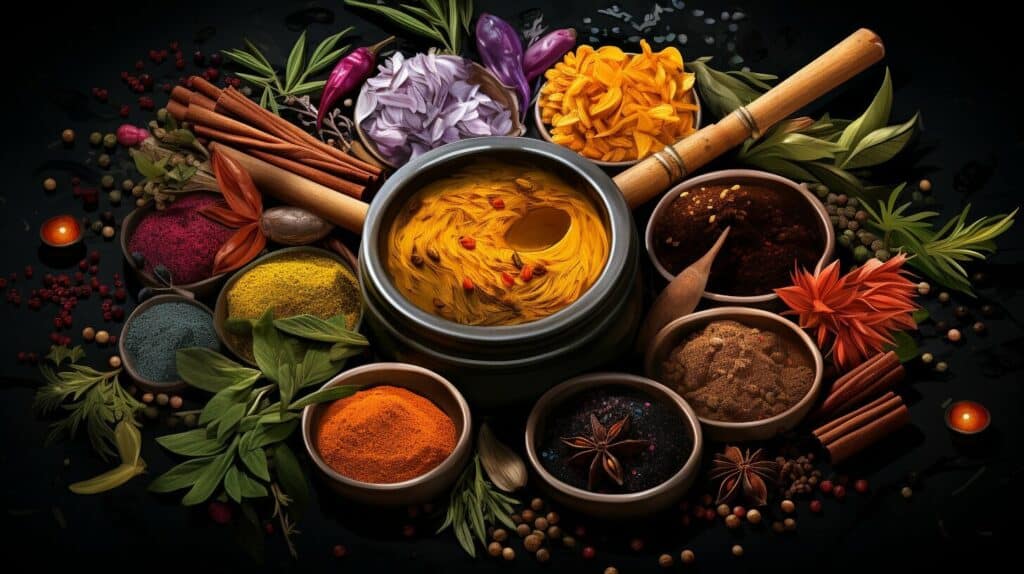
By experimenting with different marinade techniques, you can elevate the taste of your meals to new heights. Whether it’s a basic marinade or a brining technique, flavor infusion and marinating times are key factors in achieving culinary perfection.
Pairing the right marinade with the right sauce can take your dish from good to great. The key is to find complementary flavors that enhance each other without overpowering the main dish. Here are some tips to help you master the art of pairing marinades and sauces:
Remember, pairing marinades and sauces is all about creativity and experimentation. Don’t be afraid to try new combinations and find what works best for you and your taste buds.
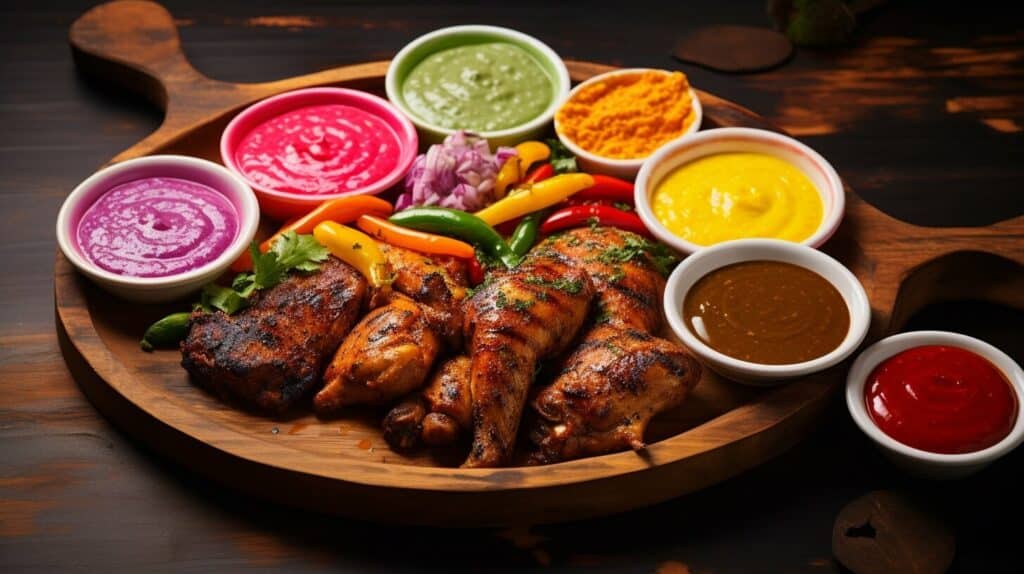
Pro Tip: When experimenting with marinades and sauces, start by marinating a small portion of the protein and tasting it before adding the sauce. This way, you can adjust the flavors before adding the sauce to the entire dish.
When it comes to marinades and sauces, you have two options: store-bought or homemade. Both have their advantages and disadvantages, and it ultimately comes down to personal preference and the dish you are preparing. Let’s take a closer look at the flavor comparison between store-bought marinades and homemade sauces.
| Store-bought Marinades | Homemade Sauces |
|---|---|
| Advantages: | Advantages: |
| Convenient and time-saving | You control the ingredients and their quality |
| Available in a wide variety of flavors | Customizable to your taste preferences |
| Consistent flavor | Can be healthier with less preservatives and sodium |
| Disadvantages: | Disadvantages: |
| May contain preservatives and high levels of sodium | Can be time-consuming to make |
| May have an artificial taste | May not have the same consistency as store-bought |
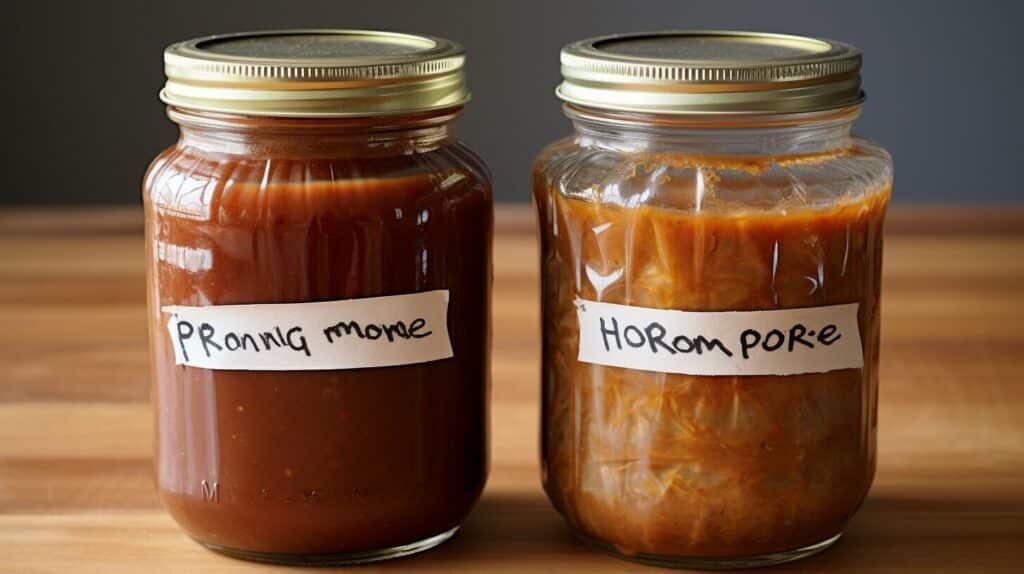
Store-bought marinades can be a quick and easy option when cooking on a tight schedule or for those who may not have access to all the ingredients needed to make their own sauce. However, they tend to be high in preservatives and sodium, which can affect the overall taste and healthiness of your dish. On the other hand, making your own sauces from scratch gives you complete control over the ingredients, allowing you to tailor the flavor to your liking and often resulting in a healthier dish.
When comparing the taste of store-bought marinades to homemade sauces, the latter typically wins in terms of flavor depth and complexity. Homemade sauces use fresh ingredients and do not rely on artificial flavorings, giving them a more authentic taste. Additionally, homemade sauces can be customized to pair perfectly with the specific dish you are cooking, whether it be a spicy Thai peanut sauce for stir-fry or a creamy garlic sauce for pasta.
Ultimately, the decision between store-bought marinades and homemade sauces comes down to personal preference and convenience. If you are short on time and need a quick flavor boost, store-bought marinades can do the trick. However, if you are looking to elevate the taste of your dish and have control over the ingredients, homemade sauces are the way to go.
Are you tired of the same flavors in your meals? Look no further than global cuisines for inspiration. Ethnic marinades and sauces can add an exciting twist to your dishes and take your taste buds on a journey around the world.
From the tangy tamarind chutneys of India to the savory miso glazes of Japan, global flavors offer a variety of options for your taste buds. Middle Eastern cuisines offer a unique blend of spices, with popular marinades such as za’atar and harissa. Latin American cuisines often incorporate citrus and chili peppers in their marinades and sauces, as seen in the popular Peruvian green sauce made with jalapenos, cilantro, and lime juice.
South Africa has its signature peri-peri sauce made with spicy African bird’s eye chili peppers. The Caribbean is known for its jerk marinade made with a blend of spices such as allspice, thyme, and scotch bonnet peppers.
Exploring global flavors can offer a new level of excitement to your meals. Whether you are experimenting with new marinades or sauces or trying out traditional recipes, there is always something new to discover.
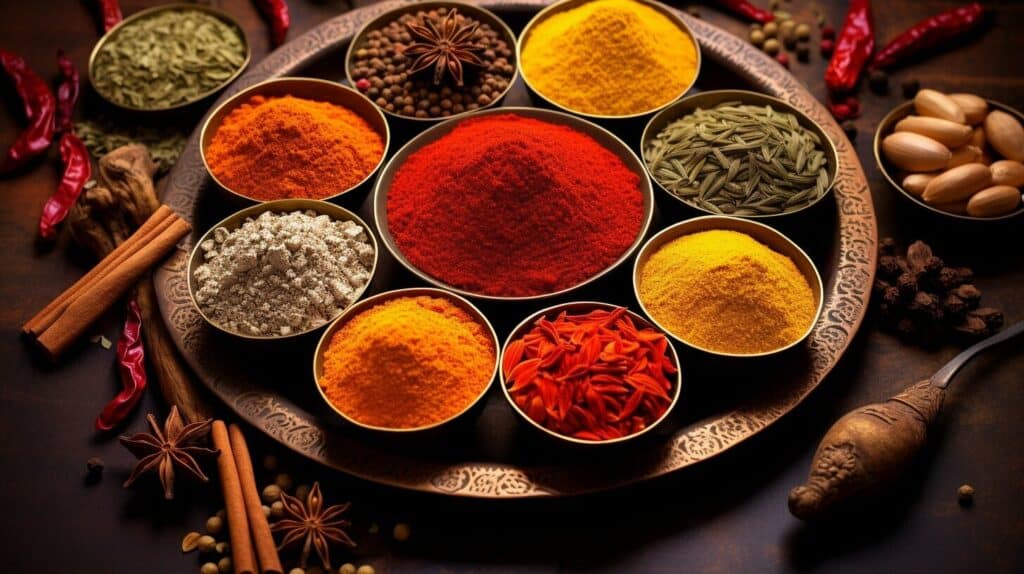
Take your culinary creativity to new heights by incorporating global flavors into your marinades and sauces. The possibilities are endless, and you may just discover a new favorite flavor combination.
Proper storage of marinades and sauces is essential to ensure optimal flavor and safety. Whether you’re using homemade marinades or store-bought sauces, here are some tips to help you keep them fresh:
If you’re marinating meat or vegetables, keep them in an airtight container or a resealable plastic bag to prevent contamination. Store the container or bag in the refrigerator, and avoid leaving it out at room temperature for too long.
Marinades can be stored in the refrigerator for up to 5 days. If you’re not planning to use them within this timeframe, consider freezing them. Frozen marinades can last for up to 6 months in the freezer.
Store-bought sauces usually have a longer shelf life than homemade ones, thanks to their added preservatives. However, homemade sauces can still be stored for several days if done right. Here are some tips for storing your sauces:
For longer storage, consider freezing your sauces. Frozen sauces can be stored for up to 3 months in the freezer.
It’s important to keep track of the shelf life of your marinades and sauces, whether they’re store-bought or homemade. Using expired marinades or sauces can lead to spoilage and food poisoning. Here are the general guidelines for shelf life:
| Type | Refrigerator | Freezer |
|---|---|---|
| Store-bought marinades | Up to 1 year after the “best by” date | Up to 6 months |
| Homemade marinades | Up to 5 days | Up to 6 months |
| Store-bought sauces | Up to 4 weeks after opening | Up to 3 months |
| Homemade sauces | Up to 5 days | Up to 3 months |
By following these tips and guidelines, you can ensure that your marinades and sauces stay fresh and flavorful.
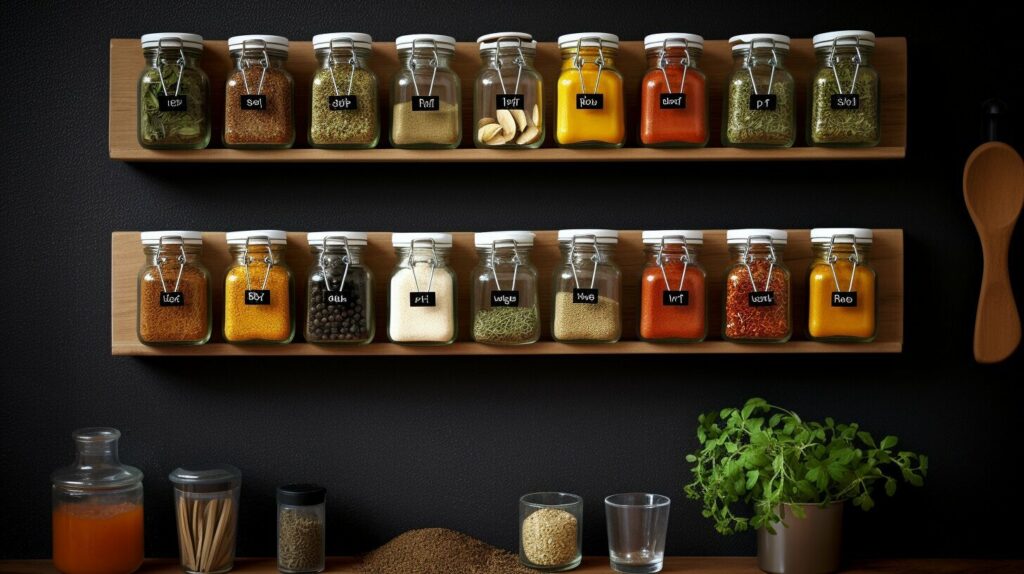
Marinades and sauces are not only delicious but can also provide nutritional benefits to your meals. By making your own marinades and sauces at home, you have more control over the ingredients used. This can result in healthier options that are lower in sodium and higher in nutritional value.
Healthy Marinades: When making marinades, try using ingredients that are rich in antioxidants and anti-inflammatory properties. These include garlic, ginger, turmeric, and citrus fruits. Additionally, consider using heart-healthy fats such as olive oil or avocado oil instead of saturated fats.
Low-Sodium Sauces: Many store-bought sauces can be high in sodium, which can contribute to health issues like high blood pressure. Making your own sauces at home allows you to control the amount of sodium used. Consider using herbs, spices, and citrus to add flavor instead of relying on salt.
Nutritional Benefits: By using fresh ingredients, homemade marinades and sauces can provide additional nutritional benefits to your meals. For example, a marinade made with olive oil, lemon juice, and herbs can add healthy fats and vitamins to your protein. A sauce made with roasted vegetables can provide a boost of vitamins and minerals.
| Tip: | When marinating meat, choose lean cuts to reduce saturated fat intake. |
|---|
Overall, incorporating healthy marinades and low-sodium sauces into your meals can provide flavor and health benefits. Experiment with different ingredients and flavor combinations to find what works best for you and your family.
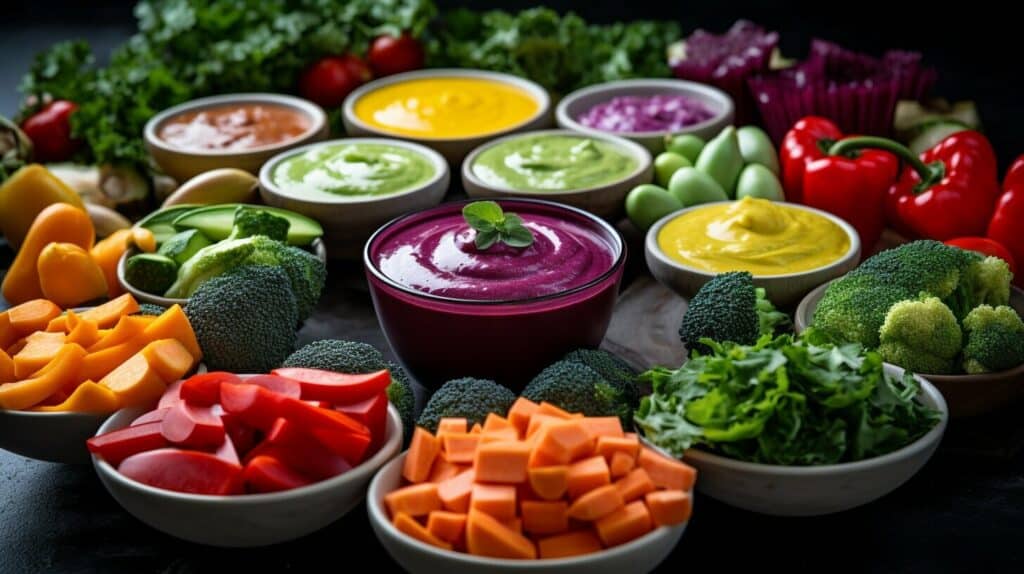
Working with marinades and sauces can result in some common issues, but don’t worry, they can be fixed. Here are some tips to help you troubleshoot the most common problems:
One of the most common marinade issues is when the flavors are inconsistent. This could happen if the marinade is not mixed well or if the ingredients are not evenly distributed. To fix this, make sure to thoroughly mix the marinade ingredients before adding the meat or vegetables.
Another issue that could arise is when the marinade is too overpowering. This could be due to the marinade being left on the meat for too long, or if there is too much acid in the marinade. To prevent this, make sure to follow the recommended marinating times and consider reducing the amount of acid in the marinade.
If your sauce is too thin, you can try simmering it for a few minutes to evaporate the excess liquid. You can also add a thickening agent like cornstarch or flour. If your sauce is too thick, you can add more liquid to thin it out.
Balancing the flavors in a sauce can be tricky. If the sauce is too sweet, add a little acid or salt to balance it out. If the sauce is too salty, add a little sweetness or acid. If it’s too acidic, try adding a little sweetness or salt. It’s all about finding the right balance and experimenting until you get it just right.
Remember, don’t be afraid to experiment with different flavors and techniques. With some practice and patience, you’ll be able to troubleshoot any issues that arise and create perfectly balanced marinades and sauces every time.

Congratulations, you’ve reached the end of this article on the power of marinades and sauces! By now, you should have a good idea of how these meal enhancers can take your cooking to the next level, adding depth and complexity to even the simplest dishes.
Remember, marinades and sauces are all about flavor enhancement and culinary creativity. Whether you’re using them to infuse meat, seafood, or vegetables with new tastes or experimenting with new global flavors, marinades and sauces are a fun and easy way to revamp your cooking skills.
So go ahead and spice up your meals with homemade marinades and sauces. Try different techniques and flavor combinations, and don’t be afraid to experiment. With the right marinade or sauce, even the most basic dish can become a culinary masterpiece.
Thank you for reading and happy cooking!

